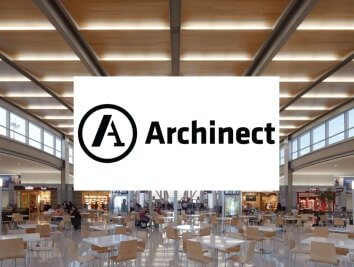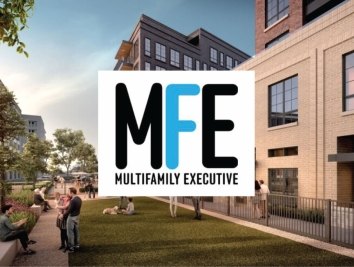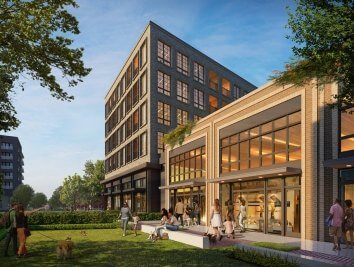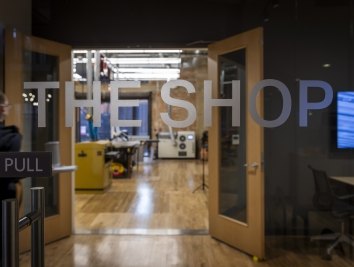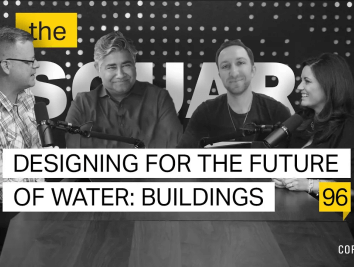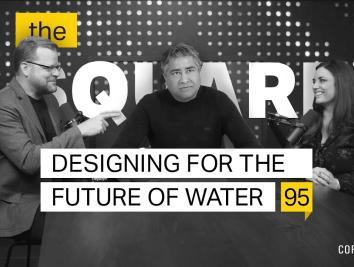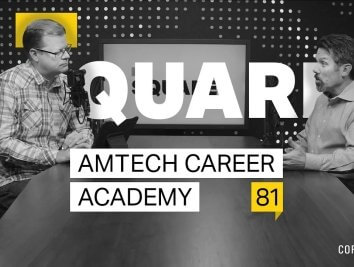Generation Alpha: Designing for the Next Generation of Learners
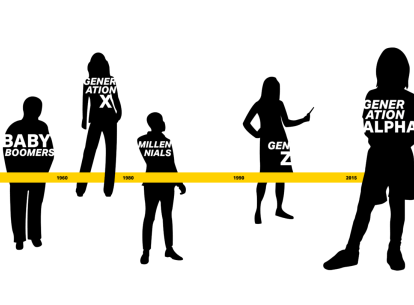
Generation Alpha, born from 2010 to 2025, is the first generation born entirely within the 21st century 1. They were born into a rapidly changing world and their lives thus far have been defined by the ubiquity of increasingly mobile, responsive, and personalized technology. Alphas are technologically literate, digitally connected, and skilled creators 25. There has never been more information readily available and easily accessible for knowledge-seekers to engage with independently, therefore, classroom experiences need to shift their focus from content mastery to meaningful and relevant, skills-based experiences that allow Alphas to innovate and share what they know 9, 25.
This next-generation approach frames learning as an active, student-led, hands-on process with seamlessly integrated tools and technologies that will necessitate a change in the design of classroom environments.
Designing Educational Spaces for the Next Generation
For each generation, our understanding of how learning takes place, the skills and competencies valued at the time, and the available technologies shape the way students are educated and how their learning environment is designed. Just like the generations before them, Generation Alpha has its own unique approach when it comes to their education. Understanding their needs, challenges, and expectations will help educators and designers work together in support of this emerging generation.
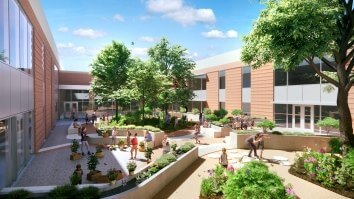
FOCUS ON WELLNESS
Wellbeing has become an increasingly important priority for recent generations 13. There is now an expectation that services, education institutions, and workplaces will support physical, mental, and emotional health — and this expectation is only likely to become more ingrained with Generations Z and Alpha. Analysis conducted by leading social demographers, Mark McCrindle and Ashley Fell, found that almost all parents believed “schools should have a holistic focus and play some role in the management of wellbeing.” In their analysis, Millennial parents had higher expectations of schools’ role in supporting student wellbeing than Gen X parents- suggesting that wellbeing will be even more of a priority for Gen Z and Generation Alpha 13.
Beyond a space to learn, schools will need to provide a sense of community, belongingness, and comfort while providing exploration, connection, mentorship, and self-development opportunities. Providing access to nature is a powerful design tool that can help to restore depleted cognitive resources like attention 4, 10, reduce physiological stress 22, support overall physical health 21, and provide a sense of wellbeing11, 14. The quality and healthfulness of the physical environment will also be important, and features like natural light, thermal comfort, air quality, and balanced visual stimulation will need to support academic performance and a holistic focus on wellness 2.
To learn more about designing educational spaces for mental and emotional health, read our blog series here.
DEVELOPMENTAL ALIGNMENT
Providing learning spaces that align with students’ developmental needs is critical for supporting their wellbeing and academic performance. For younger students, creating a sense of warmth, facilitating supportive relationships with teachers, and nurturing a spirit of curiosity through engaging and playful design can help to provide a strong foundation for lifelong learning. As students grow older, they contextualize their learning through real-world, career-tech, and globally connected experiences.
“Up-ageing” the earlier onset of maturity, and a delayed start to “adulthood” due to more extensive formal education will contribute to Alpha’s prolonged period of adolescence 3, 13. Without appropriate support and strong developmental alignment between students and their school environment, adolescents can experience declines in academic performance and increased anxiety and emotional distress, particularly when they transition between schools 23. Supporting adolescents’ sense of self-efficacy and competence, their perception of control and self-determination, and providing a feeling of belongingness are all protective factors that can positively contribute to wellbeing and academic motivation 23.
For adolescent Alphas, educational experiences that are meaningful and relevant, locally and globally connected, collaborative, and that gives them space to innovate can help meet their developmental needs. Considering adolescents’ natural propensity to take risks for the good of others and Generation Alpha’s strong activist drive, providing this generation with opportunities to create products or services of value, to engage with their community in an altruistic way, and to apply their knowledge and put their ideas into action will serve these students well 1, 9, 19, 23, 25. High visibility makerspaces, globally-connected labs, integrated Extended Reality technologies, collaboration spaces at every scale, outdoor learning spaces, and community spaces can provide targeted developmental support, promote connectivity, cross-disciplinary thinking, peer interaction, and mentorship, and can afford holistic support for Alphas as they grow towards their future careers.
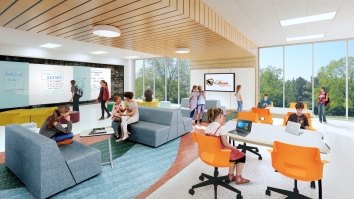
FACILITATING MEANINGFUL, HANDS-ON LEARNING
For Alphas, education needs to support their natural drive for innovation, entrepreneurship, and knowledge-sharing. Alphas are increasingly accustomed to technologies that immediately and intuitively respond to their needs, and they will expect that kind of personalization in their education. Alphas need to have agency in their learning experiences, they need to utilize technology constructively, and they need to connect what they learn with the real world.
As a generation accustomed to personalization, one size fits all education will not suffice for Alphas. The Universal Design for Learning framework is based on the cognitive science of learning and provides concrete suggestions for reducing barriers and maximizing meaningful and appropriately challenging learning opportunities for every learner 6. There is built-in flexibility and variability to allow each student to develop their own path toward building and showcasing their knowledge 16. Through the UDL framework, students become “expert learners” who are capable of utilizing the tools available to reach their learning goals in inventive ways that work for them, including students who learn differently than their peers 16. For Alphas, this flexible approach can provide a strong sense of self-efficacy, nurture a lifelong learning mindset, and provide a sense of empowerment that will support them in a rapidly evolving world.
Connectivism is a learning theory for the digital age that views knowledge as a network 7, 12, 17. In this framework, learning involves accessing and creating knowledge using digital tools, and learners are self-directed knowledge seekers who engage in collaborative, global interactions 7, 12, 17. In this context, learning is all about making connections and drawing new insight from those connections 7, 12, 17. For Generation Alpha, immersion in this ever-evolving network of information is second nature, and a critical aspect of engaging them will be to encourage them to become active creators and contributors, rather than passive consumers of information 8. Tech-enabled learning spaces with the tools Alphas need to access, create, and share digital content will be key.
Extend Reality, or XR, technologies encompass a spectrum of technologies ranging from real world to fully immersive simulations 15. 3D scanning and printing, augmented reality, mixed reality, and virtual reality fall under the XR umbrella and offer students unique learning opportunities that are simultaneously hands-on and boundary-defying. Through experiences with XR technology, Alphas can develop skills through repeated practice and gain hands-on experience in otherwise inaccessible situations 15. As XR technologies become increasingly integrated into learning spaces, Alphas will have more opportunities to explore abstract phenomena in an embodied way, providing them with unparalleled access to new knowledge and skills beyond anything experienced by generations before them.
As a counterbalance to digital connectedness, Place-Based Learning can help Alphas learn from the real world and their local context 18, 20. In this framework, learning can happen anytime and anywhere because the whole world becomes the “classroom.” Learning is a contextualized process that is student-led, hands-on, and driven by organic moments of inquiry and discovery 18, 20. Teachers and students can utilize places and their resources— such as local history, culture, and ecology— to build highly contextualized learning experiences 18, 20. Outdoor learning, community-oriented design, engineering projects, and industry partnerships can provide place-based experiences for this emerging generation.
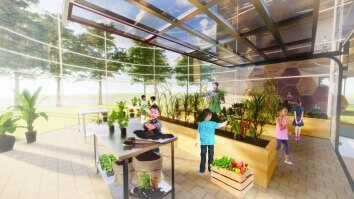
SUPPORTING LIFELONG LEARNING
Educating Generation Alpha aims to instill a lifelong love of learning 13, 25. As the first generation born entirely within the 21st century and the first to reliably live into the 22nd, Alphas will be navigating an increasingly complex and rapidly changing world, facing global challenges, and building shifting careers in industries that do not exist yet. To excel as they grow, Alphas will need confidence in their own ability to continuously evolve and cultivate their skillset while maintaining a mindset of curiosity and innovation. Creating meaningful learning spaces that support Generation Alpha's relevant and inspiring educational experiences will challenge both educators and designers. Alphas will have high expectations, but they’ll also bring an entrepreneurial spirit and a desire to channel their creative energy into socially engaged projects of value. Strong alignment between this emerging generation’s developmental needs, their learning spaces, available resources, and the opportunities they have to guide their own learning will provide critical support as they develop core competencies and their own compass for learning and engaging in their world.
References
- The Annie E. Casey Foundation. (2020, November 4). What is generation alpha? The Annie E. Casey Foundation. Retrieved October 7, 2021, from https://www.aecf.org/blog/what-is-generation-alpha.
- Barrett, P., Davies, F., Zhang, Y., & Barrett, L. (2015). The impact of classroom design on pupils' learning: Final results of a holistic, multi-level analysis. Building and Environment, 89, 118-133.
- Bellis, M. A., Downing, J., & Ashton, J. R. (2006). Adults at 12? Trends in puberty and their public health consequences. Journal of epidemiology and community health, 60(11), 910–911. https://doi.org/10.1136/jech.2006.049379
- Berman, M. G., Jonides, J., & Kaplan, S. (2008). The cognitive benefits of interacting with nature. Psychological science, 19(12), 1207-1212.
- Carolan, B. V., Weiss, C. C., & Matthews, J. S. (2015). Which middle school model works best? Evidence from the early childhood longitudinal study. Youth & Society, 47(5), 591-614.
- (2021, April 9). The UDL guidelines. CAST. Retrieved October 7, 2021, from https://udlguidelines.cast.org/.
- Goldie, J. G. S. (2016). Connectivism: A knowledge learning theory for the digital age?. Medical teacher, 38(10), 1064-1069.
- Herold, B. (2019, February 20). What It Takes to Move From 'Passive' to 'Active' Tech Use in K-12 Schools. Retrieved from https://www.edweek.org/ew/articles/2016/06/09/what-it-takes-to-move-fro…
- Hughes, J. (2020). Getting to Know Generation Alpha: 10 Takeaways for Higher Ed. Keystone: Academic Solutions.
- Kaplan, S. (1995). The restorative benefits of nature: Toward an integrative framework. Journal of Environmental Psychology, 15(3), 169-182. doi:10.1016/0272-4944(95)90001-2
- Landon, A. C., Woosnam, K. M., Kyle, G. T., & Keith, S. J. (2020). Psychological Needs Satisfaction and Attachment to Natural Landscapes. Environment and Behavior, 0013916520916255.
- Mattar, J. (2018). Constructivism and connectivism in education technology: Active, situated, authentic, experiential, and anchored learning. RIED. Revista Iberoamericana de Educación a Distancia, 21(2), 201-217.
- McCrindle, M., & Fell, A. (2020). Understanding Generation Alpha. McCrindle. Retrieved October 7, 2021, from https://generationalpha.com/wp-content/uploads/2020/02/Understanding-Ge….
- Neuroscience News. (2020, November 9). Human Wilderness Connection Has Psychological Roots and Could Reduce Disease Risk. Neuroscience News. https://neurosciencenews.com/wilderness-connection-psychology-17260/.
- Pomerantz, J. (2019, October 10). XR for Teaching and Learning. Retrieved from https://library.educause.edu/resources/2019/10/xr-for-teaching-and-learning
- Posey, A. (2021, January 13). Universal design for Learning (UDL): A teacher's guide. Retrieved February 11, 2021, from https://www.understood.org/en/school-learning/for-educators/universal-design-for-learning/understanding-universal-design-for-learning
- Siemens, G. (2017, January 1). Connectivism. Press Books. Retrieved October 7, 2021, from https://lidtfoundations.pressbooks.com/chapter/connectivism-a-learning-theory-for-the-digital-age/.
- Smith, G. (2016, December 24). The Past, Present and Future of Place-Based Learning. Getting Smart. https://www.gettingsmart.com/2016/11/past-present-and-future-of-place-b….
- Telzer, E. H., Kwon, S. J., & Jorgensen, N. A. Neurobiological Development in Adolescence and Young Adulthood: Implications for Positive Youth Adjustment.
- Teton Science Schools. (2021, January 21). Getting Started With Place-Based Education, Step-by-Step. Teton Science Schools. https://www.tetonscience.org/getting-started-with-place-based-education….
- Healthy Trees, Healthy Lives. https://healthytreeshealthylives.org/
- Ulrich, R. S., Simons, R. F., Losito, B. D., Fiorito, E., Miles, M. A., & Zelson, M. (1991). Stress recovery during exposure to natural and urban environments. Journal of environmental psychology, 11(3), 201-230.
- Wentzel, K. R., Tomback, R., Williams, A., & McNeish, D. (2019). Perceptions of competence, control, and belongingness over the transition to high school: A mixed-method study. Contemporary Educational Psychology, 56, 55-66.
- World Economic Forum. (2016). The Future of Jobs. World Economic Forum. Retrieved October 7, 2021, from https://reports.weforum.org/future-of-jobs-2016/.
- Zmuda, A., Alcock, M., & Fisher, M. (2017, August 10). Meet generation alpha: Teaching the newest generation of students. Solution Tree Blog. Retrieved October 25, 2021, from https://www.solutiontree.com/blog/teaching-generation-alpha/.





